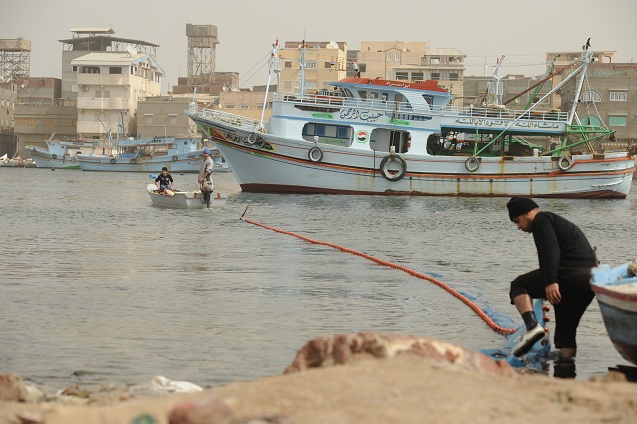CAIRO: Egypt’s economy shows signs of reform in privatization, fiscal, and business freedom, however, it remains weak in freedom from corruption, banking freedom and property rights protection, a recent study shows.
“Egypt made the biggest worldwide leap in economic freedom over the last year, gaining four percentage points, the largest improvement of any country, according to the 2008 Index of Economic Freedom.
This year, Egypt ranked the world’s 85th freest economy out of 157 countries surveyed in the index.
Egypt also ranked 11th out of 17 countries in the Middle East North Africa region, and its overall score is above the regional average.
Published by The Wall Street Journal and The Heritage Foundation, the Index of Economic Freedom tracks the march of economic freedom around the world. It covers 10 freedoms – from property rights to entrepreneurship – in 161 countries and showcases the freest economies in every part of the world.
Fiscal freedom was Egypt’s highest economic freedom this year, scoring 90.8 out of 100 points. “Egypt has low personal income and corporate tax rates. Both the top income tax rate and the top corporate tax rate are 20 percent, the index pointed out. “In the most recent year, overall tax revenue was 10.8 percent of GDP.
Egypt’s economy also scored high on freedom from government or privatization. The index has found that total government expenditures – including consumption and transfer payments – are moderate, but subsidy spending which averages LE 80 billion in the current fiscal year has caused significant fiscal deficits. “In the most recent year, government spending equaled 30 percent of GDP. Despite setbacks, privatization is proceeding, the study said.
The index applauded the current government’s economic reform efforts, citing reduction of corporate tax rates, energy subsidies cuts and privatization of several entities. “Economic reform has become a higher priority under Prime Minister Ahmed Nazif, a technocrat who took office in 2004 and has placed liberal reformers in key positions, stated the index.
On top of these reforms come efforts to simplify start-up business procedures. The overall freedom to start, operate and close a business has benefited from efforts to improve the business climate, finds the index.
“Starting a business takes an average of nine days, compared to the world average of 43 days . The government has established a ‘one-stop shop’ for investment and has moved to revamp regulation.
On the flipside, the index tracked hurdles in closing a business as well as obtaining a business license in Egypt, which requires more than the world average of 19 procedures and 234 days.
“Despite recent reforms, Egypt remains weak in most of the 10 economic freedoms. Its lowest relative score is in financial freedom, which is 12 points below average, the index pointed out. “Corruption and weak property rights are also serious problems. Corruption is common, and the fair adjudication of property rights cannot be guaranteed.
The index criticized Egypt’s restrictions on the banking sector. The Central Bank of Egypt refuses to issue new banking licenses, and buying a bank is the only way into the Egyptian market.
“Non-performing loans are significant, and new banks face constraints. Bankers are reluctant to lend privately because of loan scandals and the lack of an institution capable of judging credit-worthiness, the index said.
The index also deemed the country’s enforcement of property rights “seriously deficient. “On average, it takes six years to decide commercial cases, and appeal procedures can extend court cases beyond 15 years. Judicial procedures tend to be protracted, costly, and subject to political pressure. But Egypt’s lowest score this year stemmed from the corruption track, which the index perceives as “significant. “Bribery of low-level civil servants seems to be a part of daily life, and there are allegations of significant corruption among high-level officials.
Regionally, Egypt was surpassed by 10 countries in the Middle East namely Bahrain (19), Kuwait (39), Oman (42), Israel (46), Jordan (58), Saudi Arabia (60), the Emirates (63), Qatar (66), Lebanon (73) and Tunisia (84). Overall, the region scored the lowest level of economic freedom of any of five regions surveyed this year, which makes the region the worst in the world based on a population-weighted average.
“This matters, because the Index shows a direct correlation between economic freedom and prosperity. Countries with higher levels of freedom tend to have higher GDP per capita.

